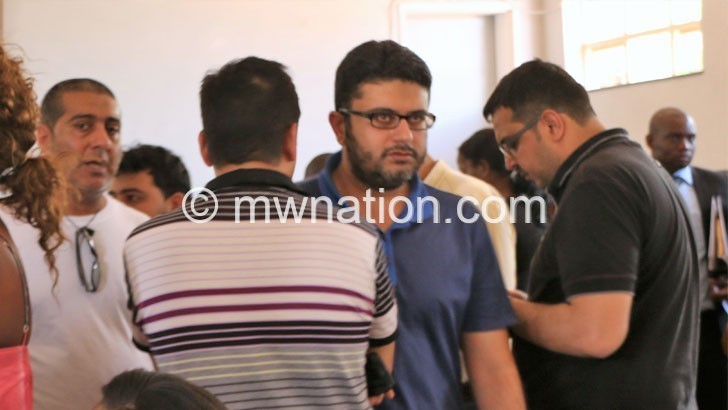How Malawi fought corruption in 2018
In 2018, the Anti-Corruption Bureau (ACB) had several opportunities to win confidence of Malawians on the way the bureau was conducting itself in fighting corruption.
The colossal opportunity availed itself in July 2018 when leaked documents revealed the corruption scandal that implicated the high office of the land and the Malawi Police Service (MPS).

President Peter Mutharika and some senior police officers were implicated in a scandal where a private company, Pioneer Investments (PI) owned by an Asian-born Malawian businessman Zameer Karim—that had won a K2.8 billion tender to supply food rations to MPS—deposited K145 million into the Democratic Progressive Party (DPP) bank account which Mutharika was a sole signatory.
The DPP and Mutharika fought back the assertions that there was corruption involved despite admitting that K145 million was indeed deposited into the party’s account.
In August, ACB exonerated Mutharika and declared that he was innocent of any wrong doing as he did not directly benefit from the deal. It transpired that Mutharika had withdrawn K65 million from the account.
However, ACB kept Karim and the police officials on the leach as the bureau indicated that they would still answer a case of defrauding government an amount of K466 million.
The exoneration of the President did not please human right defenders who accused ACB of being an accomplice in corruption.
Before the police ration scandal, the major corruption case that the ACB was handling was a 2017 spillover—the Chaponda ‘maizegate’ case.
In May, chief resident magistrate Paul Chiotcha, found Chaponda not guilty of all three counts of giving false information to the ACB, influencing a public officer to misuse his position and possession of foreign currency.
In June ACB indicated that it was going to appeal against the Zomba Magistrate Court’s verdict to acquit Chaponda.
The complex issue surrounding the demise of the ACB director of Corporate Services Issa Issa Njaunju was also highlighted in 2018, three years after his brutal murder.
In July, civil society organizations (CSOs) again blamed ACB of failing to investigate and book the people that were behind Njaunju’s murder.
In July, it became increasingly clear that the fight against corruption was on its death bed as Capital Hill was either cutting funding to key institutions or dithering to activate tools designed to strengthen the bodies.
An analysis by Weekend Nation which examined funding to key institutions in the graft fight since 2014, reviewed their legal and regulatory state, showed a trend that financial support to the bodies had decreased.
Leading institutions that the paper analysed included the Anti-Corruption Bureau (ACB), Directorate of Public Prosecutions (DPP), Financial Intelligence Authority (FIA), National Audit Office (NAO), Public Procurement and Disposal of Assets Authority (PPDA) and the Treasury.
Of these, ACB was the worst hit on funding, with the analysis showing a 12 percent cut in nominal terms since the 2014/15 fiscal year.
In September 2018, the ACB observed that corruption was affecting all sectors of the society. The bureau’s ACB’s senior public relations officer Egrita Ndala made the remarks on Tuesday after a daylong training at Hapuwani Village Lodge in Mulanje.
“Corruption is a very serious challenge in our country because it affects every sector and every individual although some people may feel that they are not affected but in real sense, they are.
In the same month the Legal Affairs Committee of Parliament invited the ACB where the committee expressed concerned over how the ACB handled the probe on the K2.8 billion contract between Pioneer Investments and Malawi Police Service (MPS).
In October, a major revelation also indicated that Mutharika had accepted five vehicles from the businessperson roughly a year after Karim, who runs Pioneer Investment—the firm embroiled in the police food rations controversy—had deposited K145 million into the ruling DPP bank account held at Standard Bank, for which Mutharika is the sole signatory.
Weekend Nation independently verified that the vehicles were registered in Mutharika’s name a year ago.
But while DPP confirmed that it received the vehicles; State House reiterated that Mutharika did not personally benefit from the vehicle donation.
And in October the Human Rights Defenders Coalition (HRDC) accused ACB of being reluctant to investigate the K145 million gift as well as the donation of five cars which businessperson Zameer Karim of Pioneer Investments made to President Peter Mutharika.
In December, ACB arrested Mr Karim of PI, Mr. Grant Kachingwe and Innocent Botomani, Commissioner of Police in relation to the contract to supply ration packs to the Malawi Police Service by Pioneer Investments in 2015.
Karim was charged with one count of theft contrary to Section 271 as read with Section 278 of the Penal Code, uttering a false document contrary to Section 360 of the Penal Code and acquiring proceeds of crime contrary to Section 42(1) (c) of the Financial Crimes Act. Kachingwe was charged with forging documents in order to help PI obtain a bank loan while Botomani was charged with uttering a false document, abuse of office and acquiring proceeds of crime contrary to Section 360 of the Penal Code 25B(1) of the Corrupt Practices Act and Section 42(1) (c) of the Financial Crimes Act, respectively.
However, they were given bail the same day.
In December ACB underscored the importance of engaging youths in the fight against corruption saying their involvement is key in curbing the vice in the country.
ACB director general Reyneck Matemba said this on Sunday in Karonga during the commemoration of the international Anti-Corruption Day which falls on December 9 each year.
Politically, in October 2018, Malawi Congress Party President Lazarus Chakwera touched a live wire when he suggested that the position of ACB director general should be open to foreign professionals as one way of fighting corruption in the country.
Speaking during a whistle-stop tour in Mzimba North on Sunday, Chakwera said the country needs to widen its scope on expertise that can help deal with corruption, rather than limiting itself to Malawian nationals. n





